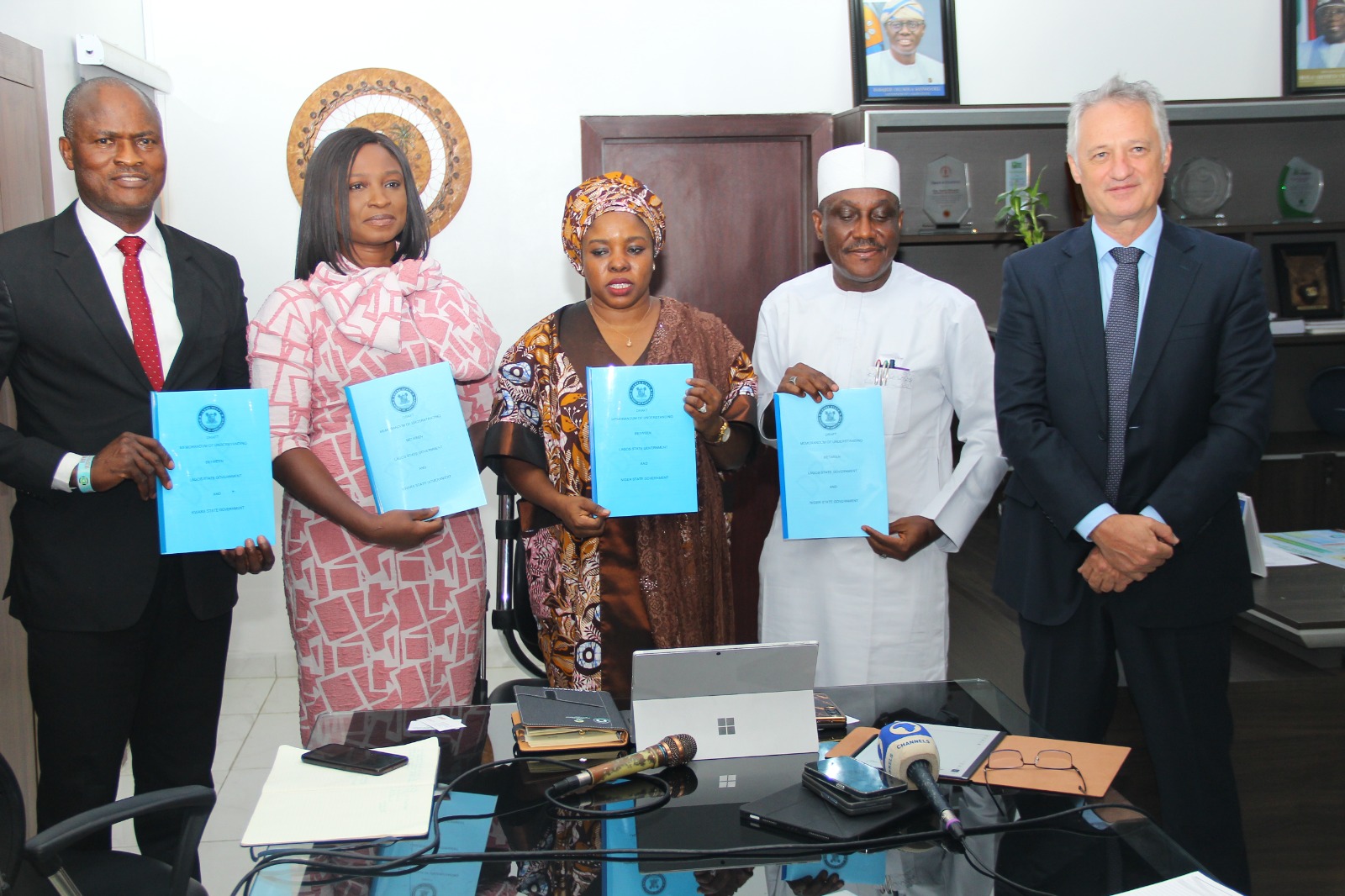
LAGOS PARTNERS KWARA, NIGER ON IMPROVED FOOD PRODUCTION
The Lagos State Government has kicked off a partnership programme with Niger, Kwara States towards bridging food supply-demand gaps under the Produce-4-Lagos initiative.
The Lagos State Commissioner for Agriculture, Mrs. Abisola Olusanya, explained that though the Lagos State Ministry of Agriculture is supporting local Lagos farmers to boost food production, particularly in livestock, fisheries, and horticulture, Niger and Kwara, as part of the broader picture of attaining Mr. President’s food security agenda, have the competitive and comparative production edge in fulfilling the Lagos demand.
Olusanya stated this at a meeting with the Commissioner for Agriculture & Rural Development, Kwara State, Mrs. Oloruntoyosi Thomas, and the Commissioner for Industry, Trade, Investment, and Private Sector Development, Niger State, Mr. Aminu Suleman Takuma, held on Tuesday at the Secretariat, Alausa, Ikeja.
“Kwara shares a border with Niger, they have the land, people and the capacity to produce. This is an agenda that we have for many states in Nigeria not just Kwara and Niger States, the Commissioner said.
She stressed that historically, Nigeria was an agro-producing nation before the strength dwindled and it became expedient to reinvigorate the production capability of the states across Nigeria and ensure they are living up to their potential in terms of food production.
The Commissioner, who assured of the sustainability of the partnership, said that Governors of the respective States are already engaging but the meeting is to fine-tune and set the process in motion.
Her words, “We understand our positioning as a state, which is the market for West Africa, so we are making efforts to ensure our people continue to get cheaper, wholesome and quality food and ensure the general prosperity and health of our citizenry”.
She added that in the last four years, the Agricultural Road Map and numerous partnerships by the state have yielded fruits with the establishment of the Lagos Central Food Security Systems and Logistics Hub, Middle-level Agroproduce hub as well as Last Mile Markets created by the State Government towards ensuring food security and sustainability.
Olusanya, who hinted that phase one of the Central Food Security Systems and Logistics Hub, Ketu-Ereyun, Epe, would be completed and commissioned later this year also expressed the readiness of the state to receive food supplies from other states, emphasising the need to ensure steady food supply to the hubs.
The Kwara State Commissioner for Agriculture and Rural Development, Mrs. Oloruntoyosi Thomas applauded the initiative which she described as a major milestone to boost agriculture in Nigeria, close the gaps of unemployment and increase food processing and production.
She said, “It is a way of bridging gaps and building communities and empowering our farmers and it is about ensuring that there is food security. We are happy to key into this to be able to feed Kwarans first before we can feed Lagos and Nigeria as a whole.”
On his part, the Commissioner for Industry, Trade, Investment, and Private Sector Development, Niger State, Mr. Aminu Takuma, mentioned that the move will go a long way toward further transforming the agricultural strategy of Niger State to blossom and yield the needed fruits for economic growth.
He said, “What we have done today, is what will make the Agricultural Transformation strategy of Niger State work. Because the Governor has kick-started it with the preparation of 600 hectares of land for cultivation. This will be allocated to youths for cultivation and the government will provide input including the seeds and fertilizer.
He added that the thinking initially was who would offtake, now we have an off-taker because we are going to be the producing state while Lagos will be the consuming state. “What we need to know now is what produce they want in Lagos, because everything you throw to the ground in Niger State grows”, he added.
Speaking earlier, Mr. Cezar Rizzi, representing the Campo, a technical partner from Brazil said that the partnership would benefit both countries as it has successfully engaged some other African countries such as Angola, Mozambique, Zambia, Uganda and Kenya, stressing that South America is a tropical area with similar climate to Nigeria and could help to improve agriculture productivity in such areas as Cattle and Poultry Production among others.
However, the partnership is in sync with President Tinubu’s executive order last July around food security, and he has lined up programmes to achieve this, particularly towards stemming food inflation and ensuring youths are actively engaged in agriculture and, more importantly, low-scale food production.
